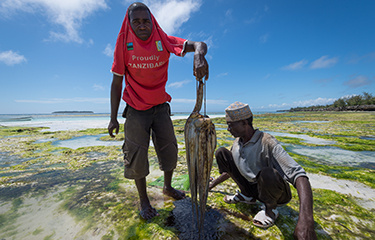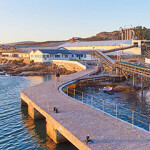Launch of Tanzanian octopus traceability system potential breakthrough moment for African fisheries

The Seafood Alliance for Legality and Traceability (SALT), a global community of governmental, seafood industry, and nonprofit organizations, has announced the launch of a traceability project for an octopus fishery in Tanzania.
With support from the Food and Agriculture Organization (FAO) the new digital intervention program, Comprehensive Electronic Catch Documentation and Traceability (eCDT), aims to improve traceability systems at the octopus fishery off the island of Kilwa. It also sets out to bolster the East African country’s efforts to combat illegal, unreported, and unregulated (IUU) fishing of octopus; expand its global seafood market reach; and meet emerging food traceability regulations that key markets, such as the European Union, have established.
At least 13 of Tanzania’s 184 districts, including Kilwa, feature octopus-fishing operations. The Mtwara District alone accounted for nearly 50 percent of the country's total production in 2020, when Tanzania's total output reached an estimated 3,430 metric tons (MT).
SALT is working closely with Tanzania’s Ministry of Livestock and Fisheries and the Aqua-Farms Organization (AFO) – a local NGO – in implementing the project, the roots of which stem back three years. Collaboration between the two groups began with a a consultative committee organized by SALT between 2020 and 2021 for developing comprehensive traceability principles and best practices to follow when designing an effective electronic catch documentation program.
The committee focused on developing principles it applied to a digital tracking program for seafood products along supply chains, covering the initiation, design, and implementation of the project.
Stemming from that connection, Tanzania, through the MLF, expressed interest in applying the new principles to an artisanal fishery that focused on exporting its products, resulting in the project at the Kilwa octopus fishery.
“The project in Tanzania will demonstrate the process of applying the guidance and will inform others worldwide,” SALT said.
The AFO said the Kilwa fishery was the preferred project site “due to the importance of the fishery to local livelihoods, the continued and forecasted growth for the fishery, the role of women and youth [in its operations], its reliance on an export market, and the opportunities for improved biodiversity conservation and fisheries management through improved data collection.”
Tanzanian octopus catches have steadily increased since 1990, when the country caught 483 MT worth of octopus, with the all-time high reached in ...
Photo courtesy of timsimages.uk/Shutterstock




Share